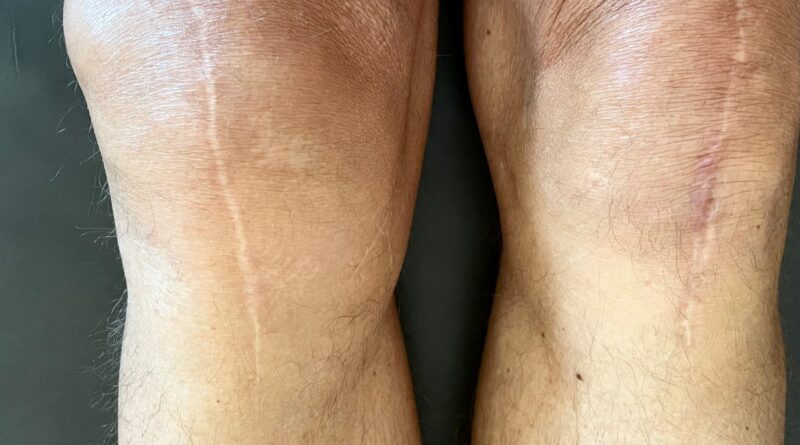Losing Things
“…The massive advantages that he had unconsciously enjoyed for so long were now a thing of the past, alien to him and probably impossible to recover. He was now as other men. It was a terrifying prospect.”1 In reading about Sterling Moss and other race car drivers the other day, I was struck by something. Not an epiphany necessarily, more like an expansion of a personal realization: we all lose things. We lose physical and mental capabilities, all of us. We don’t quit because we want to; we are forced to. Living and aging brings about an inexorable progression of loss. Things we took for granted, things we dearly miss, things we love doing. I finally have to admit I’m getting old, but I don’t want to quit – I’m just a little pissed off about it!
My personal mantra has always been, “keep moving.” I’m finding this, and all things I espoused when I was younger and neither understood nor appreciated old age, much harder to practice than preach. When I was younger, I thought it simply a matter of a weak mind, a lack of drive and self-discipline. I still think those contribute somewhat, and I chastise myself almost daily for a dwindling sense of motivation. But then, it’s always been something I feared most about mental and physical fitness – that the motivation to do it would leave me. Where would I be without the motivation?
Sam Smith of Hagerty Magazine recently wrote a feature on trauma. It’s so well written I’ve stolen a couple of paragraphs to contemplate:
“I have known people occasionally moved to inaction by the likelihood of a worst-case end. That quality does not make them lesser. If I understand that feeling, it is only because I have fought the instinct my whole life.
We all lose things, and we never know when that will happen. The only practical path forward, I think, is to be clear-eyed about the potential outcomes of the risks you are willing to take, embracing reality without letting fear slow things down too much.
The first person to fly faster than the speed of sound was an American test pilot named Chuck Yeager. His life was steeped in risk. You do what you can for as long as you can, he once said, and when you finally can’t, you do the next best thing – you back up, but you don’t give up.
After that horrible accident, (Sterling) Moss got back in the car, to try. Because of course he did. It is, in the end, all we can ever do.”
https://www.hagerty.com/media/automotive-history/in-the-moment-to believe-youre-the best/
Paul Newman was once asked how far he thought he could have gone in motor racing had he started younger. He answered by saying that like most things, it doesn’t matter when you start. You have twenty good years to go do something. And when it’s done, it’s done.
So now, here is the realization that we all suffer from it, that we all lose things. Eight major knee injuries plus six surgeries have left me essentially unable to do anything but slowly jog. Lately, the gradual failing of a knee implant makes even walking a challenge. A bike is my only form of accelerated, self-propelled locomotion. I don’t really enjoy cycling, but I have to do something. I never really got into the hiking, mountain climbing, biking self-punishment kind of thing. I just want to cruise, maybe accelerate once in a while, but generally, I just want an enjoyable cruise that has some exercise benefit. The joy of running, of gliding with a limitless sense of energy and propulsion, is only a memory now. The endorphin-high of lifting ridiculously heavy weights is unimaginable. I shake my head at the realization I once squatted 605 lbs while only weighing 178. Did I really do that? I have to search my memory to believe it really happened, that it isn’t just a wishful imagination.
My mind runs down the list of things I can no longer do, or no longer have the nerve to risk doing. Pushing the limits of anything, be it snow skiing at 80+ mph, pushing a car at the limit of grip around a racetrack, riding a bike 60 mph downhill, water skiing with an elbow touching the surface at every turn, or just pushing to the edge of my endurance; in other words, testing the limit in doing anything, everything. Injuries have taught me, finally, after all the pain and the rehab and the resulting loss of ability, to dial it back, that the ultimate effort to achieve the peak performance is no longer the ultimate goal. It’s the ability to perform at all that’s the goal now, to find things I can still do that bring me the joy of movement without the unending pain or lack of accomplishment. It’s funny to admit I have become a caricature of myself, an old man trying to do younger man things – these days, that’s like most anything!
I hate to say it but it’s so obvious now that even my boys notice it. No one wants to be old and vulnerable, not only incapable but also inept. After all these decades of being accomplished at so many things, this is a real blow to ego and the image of self.
Reflecting, I find myself grateful to even have had all these capabilities, these skills that are gradually leaving me. There’s regret in not having developed some of them further, but there’s also great appreciation for all I have done and gained so much joy from. The one thing that probably bothers me the most right now, other than the basic ability to walk, is a fear I won’t be able to snow ski anymore. That one really bothers me because I’m still really good at it. I still want to ski. Losing that will be a big one when the day comes. It will happen, but for now I still look and feel like a young man when I’m doing it. So yeah, I want to keep skiing! It makes me feel young and able.
So the fight continues. As Dylan Thomas implored, “Do not go gently into that good night.”
- Edwards, Robert, Sterling Moss, The Authorised Biography. Weidenfeld & Nickelson, London, 2014, p. 200. ↩︎




